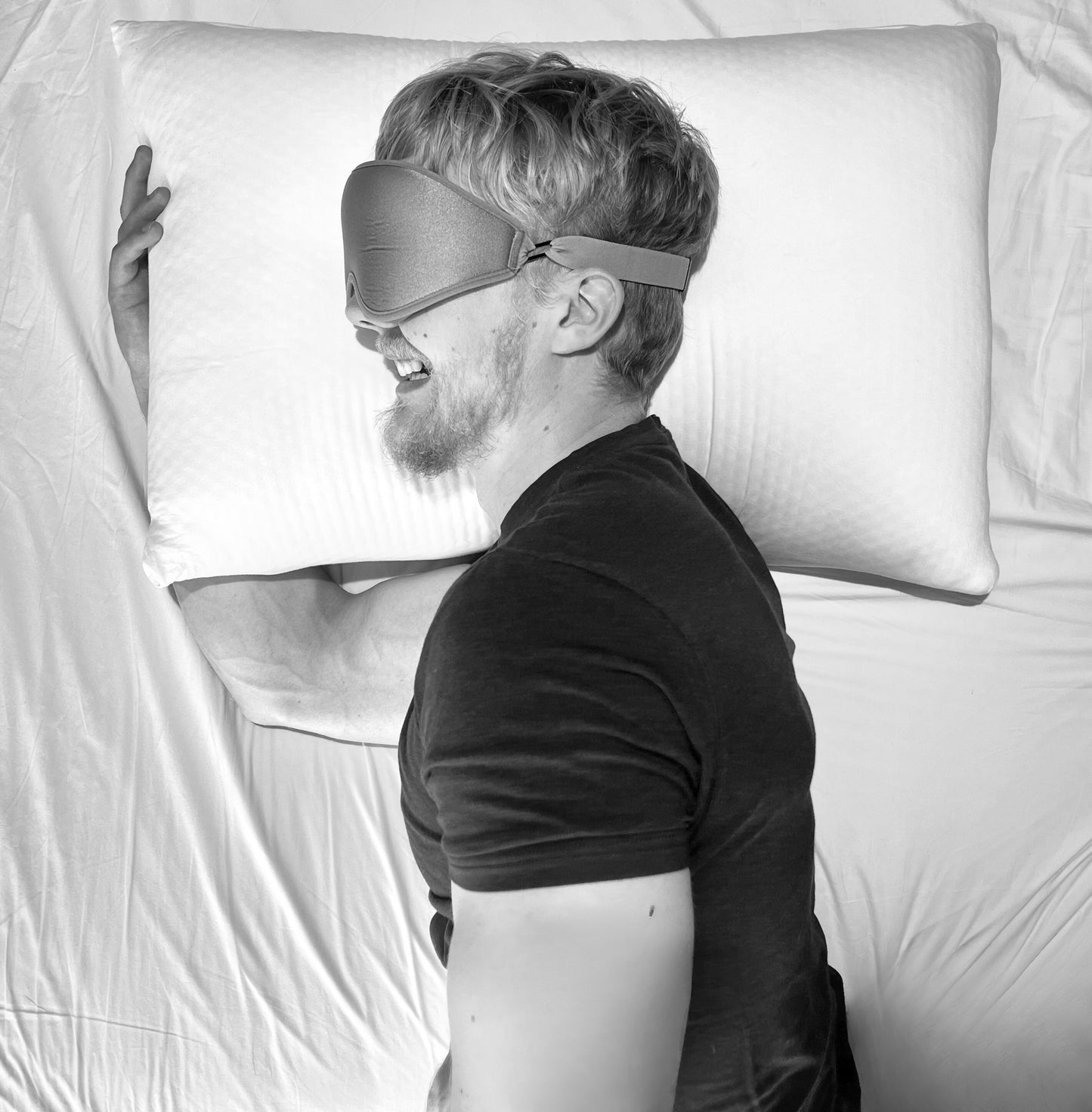Feeling tired despite getting a full night's sleep? Instead than grabbing that extra shot of espresso, consider a solution you might not have thought of - a sleep mask can help you sleep more deeply and set you up for a more productive tomorrow.
The why:
Wearing a sleep mask isn’t just about blocking out light—it’s about enhancing the overall quality of your sleep. Light exposure, even from dim sources like streetlights or phone screens, can interfere with your body’s natural circadian rhythm and suppress melatonin production, a hormone critical for regulating sleep. In fact, research shows that light exposure during sleep has longer-term negative health impacts1.
Melatonin levels naturally rise in darkness, signaling to your body that it’s time to wind down. Even slight light exposure can disrupt this process, delaying sleep onset and reducing sleep quality. By wearing a sleep mask, you create a consistently dark environment, allowing your body to optimize melatonin production.
What the research shows:
Studies found that blocking out light with a sleep mask can lead to increased time spent in slow-wave sleep, the most restorative sleep stage2,3. Slow-wave sleep is vital for physical recovery, cognitive function, and memory consolidation. The study demonstrated that participants using a sleep mask not only fell asleep more quickly but also experienced better cognitive performance, including improved memory retention and reaction times, the following day.
Eye masks, alone or combined with earplugs, were identified as one of the most effective interventions for maintaining sleep quality even in challenging environments, such as hospitals2.
What now?
Make a sleep mask part of your nightly routine, and experience the benefits of a well-rested mind and body—more energy, sharper focus, and improved daily performance
1. Mason, I. C., Reid, K. J., Warlick, C. D., Malkani, R. G., Abbott, S. M., & Zee, P. C. (2022). Light exposure during sleep impairs cardiometabolic function. Proceedings of the National Academy of Sciences, 119(12).
2. Huang, D., Li, Y., Ye, J., Liu, C., Shen, D., & Lv, Y. (2023). Different nursing interventions on sleep quality among critically ill patients: A systematic review and network meta-analysis. Medicine, 102(52), e36298.
3. Greco, V., Bergamo, D., Cuoccio, P., Konkoly, K. R., Muñoz Lombardo, K., & Lewis, P. A. (2023). Wearing an eye mask during overnight sleep improves episodic learning and alertness. Sleep, 46(3), zsac305.











